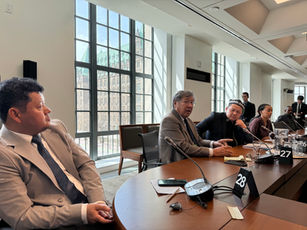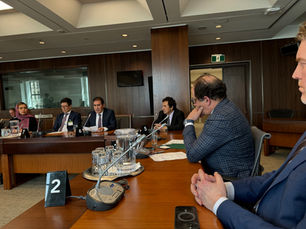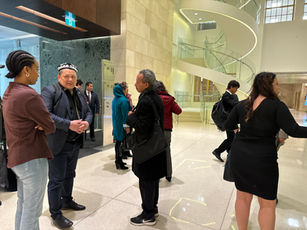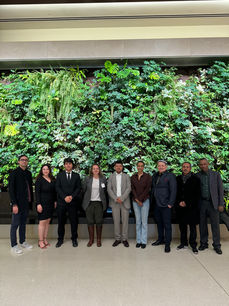
Standing for justice. Building resilience. Creating hope.
Genocide leaves deep scars—not only on survivors but on the world we share. Families are torn apart, cultures are silenced, and generations are left struggling to heal. Yet from these places of pain, survivors are rising to build resilience, seek justice, and create spaces of healing and hope.
The Alliance of Genocide Victim Communities (AGVC) exists to support this work. We bring together survivors, advocates, and allies to:
-
Amplify survivor voices so their stories are never forgotten.
-
Push for justice and accountability to prevent future atrocities.
-
Create cultural and educational programs that inspire awareness and understanding.
-
Provide spaces of healing and solidarity that strengthen individuals, families, and communities.
Your support makes this possible. By giving today—whether once or monthly—you become a partner in resilience and a voice for justice.
AGVC is formed by survivors and descendants from eight communities—Uyghur, Tigray, Hazara, Tamil, Tutsi, Tibetan, Yazidi, and Rohingya—but our mission is one that belongs to everyone.
Together, with allies like you, we can rise against hate and build a future rooted in dignity, justice, and hope.
💙 Your gift helps strengthen lives
and communities. Together, we rise.


Two Free Community Webinars for Support, Learning, and Resilience
Hosted by the Alliance of Genocide Victim Communities (AGVC)
December 9, 2026 – Online
Across Canada, countless people carry the quiet, daily ache of having loved ones living in danger — in countries facing repression, war, persecution, or political collapse. Genocide Prevention Day is a moment to honour that reality, support one another, and strengthen the tools we need to endure uncertainty together.
This year, AGVC invites you to join Gathering Strength, a pair of short, powerful webinars created to help you stay grounded, informed, and supported — no matter what is happening in the world around you.
Both sessions are free, open to everyone, and designed with compassion and accessibility at their core.
Session 1: Resilience for Those With Loved Ones in Crisis
1:00 – 2:00 PM EST | With Professor & Trauma Therapist Brenton Diaz
If you have family or friends in a crisis zone, a single news alert can make your breath catch. This session offers supportive guidance and practical grounding techniques to help you stay steady during moments of fear or uncertainty.
Led by Professor and Trauma Therapist Brenton Diaz, this one-hour webinar will help you:
-
understand how your body responds to distressing news
-
learn simple tools to regulate your emotions
-
Stay grounded while caring deeply for loved ones far away
-
Reconnect to calm when the world feels overwhelming
This session is offered with special care for AGVC’s allied communities — Yazidi, Tigrayan, Tamil, Tibetan, Tutsi, Uyghur, Hazara, and Rohingya — but it is open to everyone who carries fear for people they love.
👉 This is a supportive space. You are welcome exactly as you are.
Session 2: New Pathways to Safety — Bitcoin 101
Thursday, December 11th | 4:00 – 4:30 PM EST | With Pablo, Bitcoin Educator (Bull Bitcoin)
In many crisis-affected countries, banking systems are monitored, restricted, or unstable — making it hard or dangerous to support loved ones back home.
This clear, non-technical introduction explains how Bitcoin is being used worldwide to:
-
Send support safely to people in high-risk areas
-
bypass financial surveillance or restrictions
-
protect families from bank freezes or currency collapse
-
create new pathways for financial independence in unstable environments
Led by Bitcoin educator Pablo from Bull Bitcoin, this session is not about investing — it’s about understanding practical tools that many human rights defenders rely on when traditional systems fail.


Across the globe, communities like the Uyghurs, Hazaras, Tamils, Tigrayans, Tibetans, and Tutsis face genocide and mass atrocities. Canada must not look away.
The Alliance of Genocide Victim Communities (AGVC) is calling on all MPs and political leaders to take a clear stand and commit to:
✅ Targeted sanctions on perpetrators
✅ Criminal prosecutions under Canada’s War Crimes Act
✅ Safe resettlement for survivors
✅ A Special Envoy on Genocide Prevention
✅ Strong action against repression, disinformation, and forced labour
✅ Recognition of ongoing genocides—including those of Hazaras and Tigrayans
In the face of genocide, silence is complicity.
Let's make Canada a leader in justice. Sign our letter here.


Not Forgotten: Genocide and Creative Resistance
In a moving gathering of art, testimony, and solidarity, this event brought together survivors, artists, and advocates to resist suppression and amplify stories of resilience across multiple communities. Through poetry, song, visual art, and personal narratives, the event honoured the lived experiences of those impacted by genocide and underscored the enduring power of culture as resistance.
Participants from Rohingya, Hazara, Tibetan, Uyghur, and Tigrayan communities shared testimony of loss, survival, and unyielding hope. A special focus of the program was the commemoration of September 25 as Hazara Genocide Memorial Day, affirming the Canadian parliamentary recommendation and calling for full recognition of the Hazara genocide.
Political and academic voices emphasized that recognition must be matched by action—and that art, memory, and creativity are essential tools in the struggle for justice.
Creative Resistance advanced AGVC’s mission by:
-
Awareness: making visible experiences too often silenced or dismissed
-
Education: deepening public understanding of genocide as an ongoing, lived reality
-
Accountability: strengthening calls for institutional, legal, and political responses
We invite you to flip through photos of the event. Video excerpts will be available soon. Join us in amplifying these voices of courage.

Arm yourself with tools to think critically in today’s digital world.
Our concise, 4-page Misinformation Toolkit is designed to fit right into your phone’s notes app — so it’s always within reach when you need it most.
Simply download, copy, and paste the content into your notes. Whenever you encounter questionable information, you’ll have quick access to reliable links and practical strategies to help you verify the facts.
Stay informed. Get your free toolkit today.
The Role of Misinformation and Disinformation in the :
The Alliance of Genocide Victim Communities (AGVC) is dedicated to preventing and ending genocide through a multifaceted approach that includes awareness raising, advocacy, justice and accountability, education, and evidence collection and documentation.
We envision a world where genocide is no longer a threat, and where all people can live in peace, dignity, and freedom.
To achieve our goals, we will:
01
Raise awareness about the reality and consequences of genocide, and the urgent need to prevent and respond to it.
03
Hold perpetrators of genocide accountable for their crimes, and seek justice for victims and survivors.
05
Educate the public about the history and dynamics of genocide, and empower individuals and communities to take action to prevent it.
07
Celebrate the ongoing existence of every genocide victim community’s people and culture.
02
Advocate for coherent and consistent human rights policies in Canada, and work with policymakers to ensure that human rights are protected and promoted both domestically and internationally.
04
Work to prevent genocide by identifying and addressing the root causes of violence and discrimination, and promoting tolerance, diversity, and inclusivity.
06
Collect and document evidence of genocide, and use this evidence to support legal proceedings, advocacy efforts, and public awareness campaigns.
The Alliance of Genocide Victim Communities is committed to building a strong, diverse, peaceful and inclusive movement to prevent and end genocide and to ensure that the voices of survivors and victims are heard and respected.
Celebrating the Dalai Lama's 90th birthday in Toronto
Some of the AGVC members at 2025 G7 dialogue on transnational repression

Genocide Prevention 25

A Genocide Remembrance, Prevention and Condemnation Event
March 30th 2025- April 30th 2025
In a world where the shadows of past genocides linger and the threat of new atrocities looms, we, the Alliance of Genocide Victim Communities stand united in our commitment to remembrance, justice, and prevention. The "Genocide Prevention 25" conference, seminar and art exhibit serves as a clarion call to confront the enduring impact of genocide on communities within Canada and to forge a path toward a future free from such horrors.
Reverberate | A Genocide Prevention Conference | Sunday, March 30th, Univeristy of Ottawa.
Art Exhibit exploring the genocide experiences of Uyghur, Tutsi, Tibetan, Tigrayan, Hazara and Tamil communities. | Sunday March 30th - Wednesday April 30th 2025. University of Ottawa.
Justice, Human Rights and Human Dignity on the Horizon, A Parliamentary Seminar. Our call to action for Canadian Parliamentarians and Parliamentary Candidates from Canadian survivors of atrocity crimes during an election season. | Monday, March 31st | 10 AM - 11 AM ET | University of Ottawa.
Genocide Prevention 25 is brought to you by The Alliance of Genocide Victim Communities and funded by Heritage Canada.

The Honourable Ali Ehsassi,
Member of Parliament and Chair of the Foreign Affairs Committee.
Community Representative Speakers:
Dr. Tahir Shaaran - Hazara
Mehmet Tohti - Uyghur
Makeda Leul - Tigray
Roy Wignarajah - Tamil
Sherap Therchin - Tibet
Pascal Kenyemera - Tutsi

Moderated by Joanne M Hodges and James Joseph


Voices for Justice
Empowering Change to Remember, Condem and Prevent Genocide
April 17th 2024
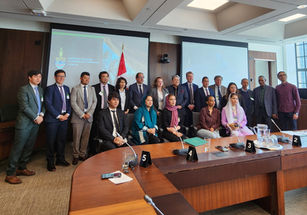

AGVC 2024 Press Conference

Assessing the PRC's Assimilation Policies in Tibet
Ibuka Canada's launch
Opening day ceremony of the
third parliament’s tenth direct session
of the
Transnational Government of Tamileelam
Allies Combating Uyghur Forced Labour
International Conference on Genocide and Crimes Against Humanity
















